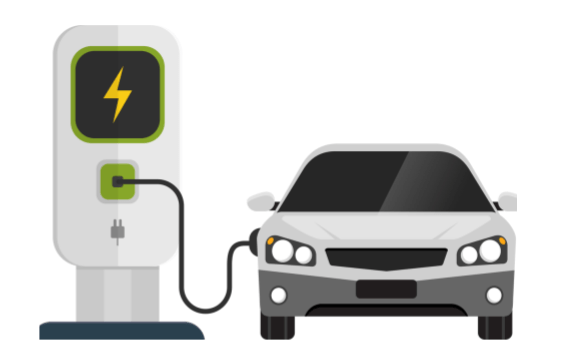
As more drivers embrace the transition to electric mobility, understanding the fundamental differences between charging an EV and fueling a traditional car becomes crucial. In this blog post, we explore four key ways charging your EV differs from filling up your car with gasoline.
1) Charging your EV is a lot like charging your phone.

Electric vehicles (EVs) have opened up a whole new realm of possibilities for transportation, promising a greener and more sustainable future. Much like charging our phones, EV owners now have a variety of options to juice up their vehicles, offering flexibility and convenience to cater to different charging needs. Just as we plug our phones into standard outlets or use rapid chargers for quick top-ups, EVs offer similar options for their charging requirements.
2) Time

Initially, when electric vehicles (EVs) first entered the market, the majority of EV owners relied on home charging or workplace charging to power up their vehicles over a period of several hours. This charging approach offered convenience for daily commuting and routine errands, as EVs could be plugged in overnight or during work hours, ensuring a full battery for the next day’s activities. The slower charging pace was well-suited for these scenarios, as drivers could easily manage their charging needs within the comfort of their home or workplace environments.
3) EVS are better for environment

The notion of the “end of oil” is becoming increasingly plausible, as the world continues to face the urgent need to transition towards cleaner and more sustainable energy sources. The widespread consumption of fossil fuels, such as oil, for energy and transportation purposes, has long been associated with detrimental environmental impacts. The combustion of fossil fuels releases significant amounts of pollutants, including smog-forming substances, greenhouse gases like carbon dioxide (CO2), and various harmful particulates that have severe implications for human health and the environment.
4) Price

One of the significant financial advantages of owning an electric vehicle (EV) lies in the cost savings associated with charging compared to filling up a gasoline car. On average, charging an EV costs about 35% less than refueling a conventional gasoline vehicle, making EVs an attractive option for cost-conscious consumers.
The cost disparity between charging an EV and filling up a gasoline car stems from several factors. Firstly, electricity prices per unit (kilowatt-hour) tend to be lower than the cost of gasoline per gallon. This fundamental difference in fuel sources translates into immediate savings for EV owners. Additionally, electricity rates often have tiered pricing structures or time-of-use rates, allowing EV owners to take advantage of lower rates during off-peak hours, further reducing charging costs.
In conclusion, understanding the four distinct ways in which charging your EV differs from filling up a traditional car offers valuable insights into the evolving landscape of electric mobility. The shift from fossil fuel reliance to electric vehicles is not just a matter of changing propulsion technology; it represents a transformative journey towards a cleaner, greener, and more sustainable future.


